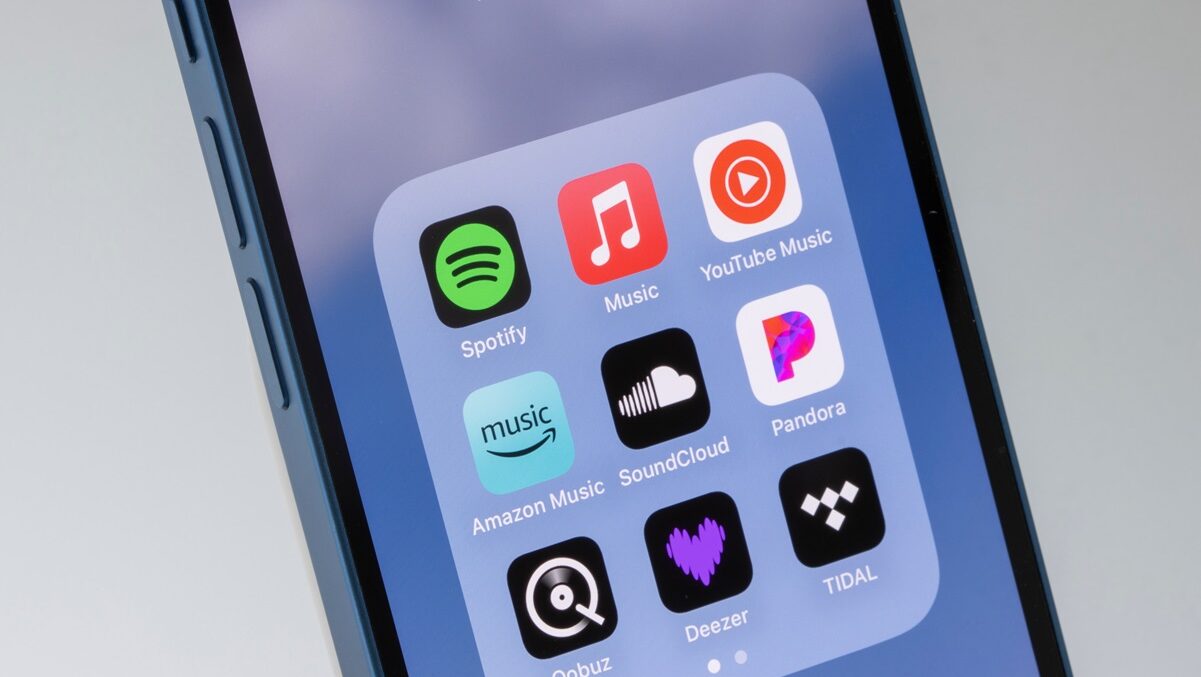
Just days before the EU’s Digital Markets Act (DMA) was set to enter into force, the European Commission hit Apple—one of the six designated “gatekeepers” to which the new law will apply—with a hefty €1.8 billion fine for the kinds of anti-steering provisions that will be banned by the DMA, which enters into force on 6 March.
The timing of the fine, and its seemingly arbitrary amount, are both curious. Announced as being the result of a four-year investigation, the decision amounts to an exclusionary-abuse turned exploitative-conduct case, and is underpinned by a flimsy theory of harm in a market that has seen exponential growth over the past decade. The fact that the Commission fined Apple for conduct that would be banned per se just two days later raises questions as to why the DMA was necessary and whether the Commission has faith in the new law’s effectiveness.
The Fine’s Timing and the Rationale Behind the Decision
The timing of this fine is somewhat puzzling, as Apple would have been precluded from including anti-steering provisions in its contracts with developers following the DMA’s entry into force on 6 March (i.e., two days after the fine). Moreover, the €1.8 billion total, while significant, doesn’t appear to follow from any objective methodology. In fact, the fine would have been closer to €40 million had a rather arbitrarily determined “lump sum” not been added to “ensure the overall fine imposed is sufficiently deterrent.”
It’s unclear why such deterrence would be needed, given that the DMA allows the Commission to impose up to 20% of a company’s worldwide turnover for infringements. Further, such a haphazardly imposed sum is a first in EU competition law, and is therefore likely to be overturned on appeal.
So, if not deterrence, then what does the Commission hope to achieve? Perhaps it is using competition law to punish Apple for what it sees as a lackluster compliance plan with the DMA (Apple recently published its DMA compliance plan, which was criticized by some of the company’s usual opponents). Or maybe it would just like to punish Apple—full stop.
The Commission and the EU have made no bones about their hostility to “big tech” these past five years, and have used every opportunity to antagonize Apple in particular. This could be part of the broader strategy to “discipline” big tech and to “level down” gatekeepers that have “too much power.” Or maybe this is a grudge match fueled by a regulator with a bad track record of enforcement litigation against Apple; perhaps the Commission wanted one last shot at the company before the DMA entered into force.
Or maybe it is just the case that the Commission had in the pipeline for the longest time, and decided to pull the trigger right before the DMA’s entry into force because it thought Apple would be unlikely to appeal a fine for conduct remedies with which it has to comply anyway. After all, €1.8 billion makes headlines, and it also lines the Commission’s pockets. What’s not to love? If that was the strategy, it should be noted that Apple has already said that it will appeal.
Exploitative, Exclusionary, or Just Convenient?
The substance of the case is dubious, at best. It would be interesting to see where the Commission has found evidence of harm in a digital-streaming music market that has grown exponentially. Indeed, In just eight years, the digital-streaming music market has gone from 25 million subscribers to almost 160 million—a 27% annual growth rate. As Herbert Hovenkamp recently pointed out in an interview for the Financial Times, this is not the sort of market that screams “anticompetitive harm,” even if some complementors, like Spotify, would like to get a better deal (because of course they would).
To a significant extent, [enforcers] are grappling with the wrong things. Which industries should the antitrust authorities pursue? You look for industries that are characterised by slow growth, oligopoly, rigid market shares, not very big increases in productivity — industries of poor performance. You try to make those industries perform better. With Big Tech, we’re looking at probably the most productive part of the economy.
In this supposedly anti-competitive environment, which has persisted for years, Spotify, based in Sweden, has been the biggest winner. Today, Spotify is dominant in the music-streaming market—with a 56% share, double its closest competitor—all the while paying Apple nothing.
It’s relevant to go over how the App Store works. Apple collects a fee to use its proprietary software and iOS (as well as access to a customer base with which it has built considerable goodwill over the years) through a commission on its in-app payment system (IAP). Apple also charges a commission on paid apps. But most app downloads (86%) are free, meaning that Apple charges nothing. This arrangement can be sustained because Apple cross-subsidizes those free downloads by charging a commission on in-app purchases and paid downloads.
Spotify has effectively circumvented paying this fee because users don’t pay to download the app and because there are no in-app purchases. Users instead subscribe to Spotify through their web browser. Indeed, the fact that app developers have this power to either bypass the fee or to negotiate better terms may be considered evidence that the DMA’s “gatekeeper” designation is not as powerful as the Commission argues that it is. If an app offers a sufficiently cool service or product, users will follow that app to wherever they need to go and help the company to “win” the negotiation.
Today, Spotify is 2.3 times bigger than Apple’s own Apple Music competitor in the UK; 1.6 times bigger in France; and 1.9 times bigger in Germany. Deezer, a French music-streaming service, is roughly the same size as Apple Music in France. Given this, and given the general growth of the sector, it is difficult to argue convincingly that Apple has used its dominant position in the (extremely narrowly defined) “market for the distribution of music streaming apps to iOS users” to exclude rivals. (For more on gerrymandering in antitrust markets, see here.)
This may have been why the Commission switched its appraisal of the impermissible conduct under scrutiny here from the initial “exclusionary” to “exploitative conduct.” Under Article 102 of the Treaty on the Functioning of the European Union (TFEU), exclusionary conduct indirectly harms consumers by excluding rivals. By contrast, exploitative conduct directly harms consumers. Traditionally, the Commission has prioritized exclusionary-abuse cases, as it was understood that this type of conduct was more harmful in the long run (but see here).
As I have pointed out above, an exclusionary-abuse case without evidence of exclusion, and with plenty of evidence of competitors thriving, would be a hard sell. According to the Commission, Apple harmed consumers because it obstructed them from taking informed and effective decisions on where and how to purchase music-streaming subscriptions for use on their devices. As a result, they paid more and had fewer options. The Commission found that:
Apple’s anti-steering provisions led to non-monetary harm in the form of a degraded user experience: iOS users either had to engage in a cumbersome search before they found their way to relevant offers outside the app, or they never subscribed to any service because they did not find the right one on their own.
But were consumers really precluded from making an informed decision? It doesn’t seem overly hard to find out about Spotify and its membership fees. Users can’t subscribe through the app on iOS, but they can use the browser on their phone (see for yourself). Depending on how precipitously one lowers the bar for the average consumer, just about any intervention might be justified, in principle (see also here). This then inevitably leads to paternalism and overenforcement, and facilitates rent-seeking by those who—like Spotify—would use the antitrust laws out of convenience.
Incidentally, these non-pricing harms are the same ones that the Commission argued warranted bumping up the fine from €40 million to €1.8 billion because, in its view:
Such lump sum fine was necessary in this case because a significant part of the harm caused by the infringement consists of non-monetary harm, which cannot be properly accounted for under the revenue-based methodology as set out in the Commission’s 2006 Guidelines on Fines.
In other words, a random €1.8 billion is added to a more-or-less random theory of harm that posits an unlikely level of incompetence from the average iOS user to be even minimally plausible as a theory of anticompetitive harm. Let’s see what the European General Court finds once it hears the appeal that Apple has already announced it will file.
What the Case Says About the Relationship Between the DMA and Competition Law
The decision also raises an interesting question about the relationship between EU competition law and the DMA. Anti-steering provisions such as the one at stake here are prohibited by the DMA. The decision thus confirms that there is a continuum between antitrust investigations and DMA obligations, despite the Commission consistently denying this link (for the opposite view, see here).
This also raises a broader question about the DMA’s necessity, which should give pause to those countries looking to mimic it. If DMA obligations can be imposed through competition law, why is the DMA necessary? Adopting and then enforcing DMA-style regulation is anything but costless. It costs money to adopt, it costs money to enforce, and it can result in unintended consequences and chill pro-competitive conduct in ways that impose additional costs on society (see here, here, and here).
Furthermore, if the Commission is so confident that the DMA will be effective, why has it used competition law to impose a fine for conduct that will become a legal obligation in the EU in just two days?




